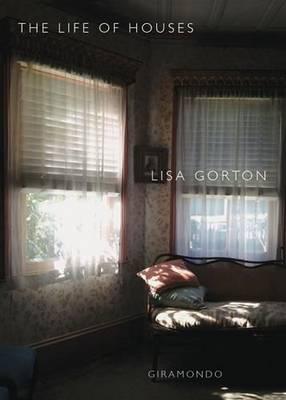 In my yoga class, the teacher repeats a phrase during the meditation that I have always found poetic. She says, “observe how inhales arise out of stillness, and how exhales dissolve back into stillness.” If there was ever a book that is a literal interpretation of that sensation, The Life of Houses must surely be it.
In my yoga class, the teacher repeats a phrase during the meditation that I have always found poetic. She says, “observe how inhales arise out of stillness, and how exhales dissolve back into stillness.” If there was ever a book that is a literal interpretation of that sensation, The Life of Houses must surely be it.
The Life of Houses is the first novel by acclaimed Australian poet Lisa Gorton. In it, the narration chops between 15-year-old Kit, and her mother Anna, who has sent her daughter to spend the week with her estranged parents in a miniature seaside town. Anna’s frail, elderly parents, Patrick and Audrey, have not seen their only granddaughter since she was small. Anna effectively sends Kit in her place for the once-in-a-decade pilgrimage to her childhood home, whose high ceilings, mustiness, and isolation she despises.
This is a novel more about places than people. It is a novel about what is unsaid, rather than what is said. It is a novel about incomplete returning, not new beginnings. In that sense, the whole book takes on a grim and dusty quality, and the places in it are knee-jerkingly tactile: you really feel the claustrophobia of the quaint, disconnected, gossipy town, and the unrealised dreams of the people in it. You feel the plastic veneers of the small local hospital where the story’s ending takes place. The places become their own characters, and the novel’s strongest, at that.
The highlight of The Life of Houses is Gorton’s painstaking understanding of small town living. Kit’s grandparents’ town is the kind of place that one might drive by on an interstate journey. You might stop there for a meat pie and think it sort of pretty, however you rarely consider that people actually live there – this is their lives, not just a pit stop. For city-dwellers like Kit and Anna, this arbitrary place isn’t a source of inspiration or beauty, but a place of suffocation. Through Kit’s eyes, her grandparent’s house is “suspended in a watery dimness… these rooms were everywhere crowded and vacant. To walk through them was to realise how entirely the house in which she lived was her mother’s house.”
Gorton’s poetic heritage glistens on every page. The sentences are deliberate, beautifully paced, and haunting. The book’s stillness is, however, it’s most wonderful quality. Through encouraging slow reading, you can hear the sound of the waves crashing outside Kit’s window.
Louise Jaques is a poet from Sydney, and her work has appeared in Cordite, The Vocal, Vertigo, and two UTS Writers’ Anthologies. She recently edited the 29th UTS Writers’ Anthology, Strange Objects Covered With Fur. Find her on Twitter at @louise_jaques.
